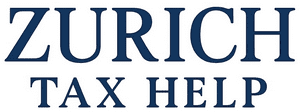As an expat living in Switzerland, understanding your tax obligations can feel overwhelming. Many wonder if they need to file a Swiss tax return, especially when taxes are deducted at source. The rules depend on your permit type, income, canton of residence, and personal circumstances. This guide explains who must file, when it’s mandatory, and how you can avoid costly mistakes.
When Do Expats Need to File a Swiss Tax Return?
In Switzerland, many expats pay taxes through withholding tax (“Quellensteuer”), deducted directly from their salary. This often means you don’t need to submit an annual tax return. However, there are important exceptions:
You must file a tax return if any of the following apply:
- Your gross income exceeds CHF 120,000 per year
- You receive additional income besides your salary (e.g., freelance work, rental income)
- You own property or assets in Switzerland
- You want to claim deductions like professional expenses, family allowances, or Pillar 3a contributions
- You are self-employed or a business owner
- You live in a canton that requires filing even with withholding tax (some cantons differ)
Note that cantonal tax laws vary, so your canton of residence may have extra filing requirements.
Understanding Your Tax Residency and Permit Status
Your residency status and type of permit affect your filing obligations:
- Permit B (residence permit with source tax): Usually taxed at source, but may still have to file a tax return if above income thresholds or special cases.
- Permit C (permanent residency): Usually must file a full tax return every year.
- Permit L (short-term permit): Typically taxed at source, but rules depend on canton and income.
What Documents Do You Need to File?
If you need to file, prepare these documents:
- Salary certificate (Lohnausweis) from your employer
- Statements for bank accounts and investments
- Insurance certificates (health, accident, pension)
- Receipts for deductible expenses (commuting costs, education, childcare, donations)
- Documents on property ownership or rental contracts
If you need help gathering paperwork, download our free Swiss Tax Documents Checklist to stay organized.
What Happens If You Don’t File When Required?
Failing to file your Swiss tax return when obligated can lead to:
- Fines and penalties
- Estimated assessments (tax authorities guess your income and charge you more)
- Loss of deductions and benefits
If you’ve missed deadlines, contact your canton’s tax office ASAP to clarify next steps.
How to Check If You Need to File
- Check your canton’s tax office website for specific rules
- Use online tools or calculators offered by many cantons
- Ask your employer if your income is fully taxed at source
- Contact a tax advisor specializing in expat taxes in Switzerland
Getting Help: Tax Advisors Who Speak English
Swiss tax laws are complex, especially for expats. If you’re unsure, it’s smart to get expert advice. At Zurich Tax Help, we connect you with trusted, English-speaking tax advisors across Switzerland who can help you file correctly and maximize deductions.
👉 Contact us here for a no-obligation consultation.
